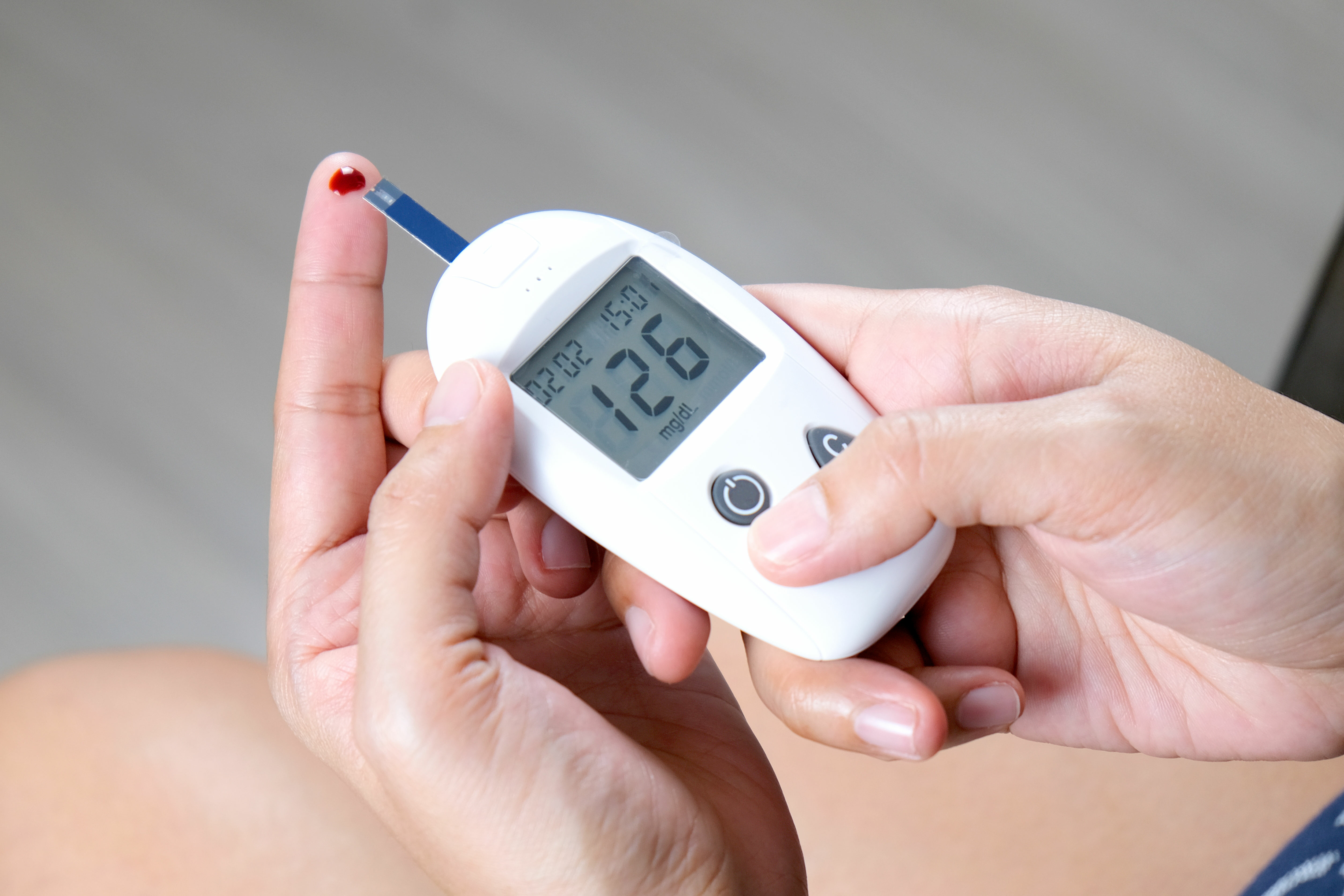Ongoing Research

AI2Equity: AI Integrating Social Determinants of Health to Advance Health Equity in Cardiovascular Risk Prediction(NIH: 1R01HL171599-01; PI: Liu) 4/2024-3/2028
Major Goals: There is a pressing need to address health disparities in cardiovascular disease (CVD). This study will use machine learning to develop a novel CVD risk prediction model that considers social determinants of health, structural social factors, and clinical factors, as well as their complex interactions. The model will be designed to be equitable, interpretable, and generalizable across diverse populations.
Aim Ahead: DETERMINE: Diabetes prediction and equity through responsible machine learning(U of North Texas HSC/NIH:1OT2OD032581; PI: Liu) 09/2023-09/2025
The overarching goal of this project is to build an AI-powered, equitable, interpretable, actionable, and generalizable diabetes risk prediction model.

iDAPT: Implementation & Informatics Developing Adaptable Process and Technologies for Cancer Control (NCI P50CA244693), 09/18/2023-08/31/2024
The iDAPT Developing Cancer Center (Award Number: P50CA244693) is part of a newly formed national network of collaborative research centers, funded by the National Cancer Institute and supported through the Beau Biden Cancer Moonshot SM Initiative. The iDAPT Developing Cancer Center, led by Drs. Kristie Foley and Thomas Houston from the Wake Forest School of Medicine and Dr. Sarah Cutrona from the University of Massachusetts Chan Medical School is a Developing Implementation Science Center for Cancer Control that will use technologies to support rapid cycle and real-time deployment and testing implementation processes and adaptations within cancer control. The iDAPT team focuses on building capacity among primary care and oncology partners to engage in implementation science in cancer control and to conduct pilot studies aligned with iDAPT's theme.
Activity Choice: A clinic-delivered implementation program to increase physical activity and decrease cardiovascular disease risk amongst cancer survivors (NHLBI K01HL163254), 12/13/2022-11/30/2026
The goal of ActivityChoice, led by Dr. Jamie Faro, is to develop and pilot test a clinic-based implementation program using patient narrative decision aids to support choices to a group in-person, group virtual, or self-monitored digital health physical activity program.
Integrating Cancer Survivorship Care into Primary Care (UMCCTS PPP), 06/01/2023-05/31/2024
Led by Dr. Jamie Faro, this project is a collaboration between primary care providers, cancer care providers, healthcare administration, and health IT. The objective is to understand the current state of post-treatment survivorship care at UMass Memorial, identify barriers to care communication, and develop strategies to improve care pathways. The overall goal is to improve cancer survivor's quality of care as they transition back to their primary care provider.

M2Q2-HIV: mHealth Messaging to Motivate Quitline use and Quitting among Persons Living With HIV in Vietnam (NCI U01CA261604), 09/17/2021-08/31/2026
This research project, led by Drs. Hoa Nguyen and Rajani Sadasivam, is a randomized trial designed to develop a peer messaging and computer-tailored texting intervention to support smokers living with HIV in Vietnam to quit smoking. The project aims to adapt a current, effective peer messaging and computer-tailored texting intervention for PLWH smokers, to evaluate the effectiveness and process outcomes of the intervention, and, if proven to be effective, to integrate M2Q2-HIV project products into the Vietnamese clinical and public health infrastructure to continue promoting smoking cessation among PLWH smokers. This project is a collaboration between the University of Massachusetts Chan Medical School, the Vietnam Ministry of Health - Vietnam Authority of HIV/AIDS Control, and the Institute of Population, Health and Development (PHAD) in Vietnam.
Vaper to Vaper (V2V): A Multimodal Mobile Peer Driven Intervention to Support Adolescents in Quitting Vaping (NIDA R34DA050992), 05/15/2021-04/30/2025
The goal of this R34, led by Drs. Lori Pbert and Rajani Sadasivam, is to develop the Vaper-to-Vaper (V2V) multi-modal mobile peer-driven intervention to assist adolescent e-cigarette users in quitting. The V2V components will include 1) Peer messaging (tailored messages pushed via texting), 2) Peer coaching (asynchronous communications with trained coaches via texting), and 3) and Gamification (using game design to motivate participation).
Adapt2Quit – A Machine-Learning, Adaptive Motivational System: RCT for Socio-Economically Disadvantaged smokers(NCI 1R01CA240551-01A1), 04/16/2020-03/31/2025
Adapt2Quit — an innovative motivational texting "recommender system" – is led by Dr. Rajani Sadasivam. Adapt2Quit enhances tailored motivational messaging systems using machine-learning algorithms to learn from and adapt user feedback (prior and daily message ratings), increasing personal message relevance. This research project will test Adapt2Quit motivational messaging texting with socio-economically disadvantaged (SED) smokers.

The Dynamic Diffusion Network QUERI Program (QUE 20-012)
The Dynamic Diffusion Network QUERI's impact goal is to provide evidence for how VA and other healthcare systems can successfully spread complex clinical EBPs beyond early adopters to reach underserved late adopter sites. This evidence will be obtained by conducting two randomized trials of an implementation strategy that aligns with the Exploration, Preparation, Implementation, Sustainment (EPIS) implementation framework. These trials will specifically address two pressing clinical areas: moral injury and persistently uncontrolled diabetes. Dr. Sarah Cutrona serves as MPI on this project.
DEI Summer Research Program (HSR&D DEI SRP-019-22S)
The goal of the DEI Summer Research Program, led by Dr. Kristin Mattocks, is to train a new generatio nof students from diverse backgrounds to better understand all aspects of maternal health for women Veterans.
Continuing the Conversation: A Multi-Site RCT Using Narratice Communication to Support Hypertension Self-Management among African-American Veterans (IIR 17-185)
The goal of this randomized controlled trial is to improve hypertension self-managment in african american veterans. Study participants will view video-recorded stories in which veterans share strategies for effective self-managment. Participants will be invited to select the peer narrative that is the most compelling.The research team will "continue the conversation" offering longitudinal support via 6-months of narrative-aligned text messages. Dr. Sarah Cutrona serves as PI on this project.
Integrating Rapid Cycle Evaluation to Improve Cerner Implementation
This QUERI partnered evaluation aims to improve the VA's electronic health record modernization (EHRM) by ensuring that it is informed by frontline clinician and staff experiences.

Team Support to Improve Glycemic Control Using CGM in Diverse Populations (NIDDK 1R01DK133265), 04/2023-03/2028
TEAM-CGM, is led by Dr. Ben Gerber. Using a Sequential, Multiple Assignment, Randomized Trial (SMART), the study evaluates if team-supported continuous glucose monitoring (CGM) can improve glycemic control in the primary care setting targeting individuals with poorly controlled type 2 diabetes. CGM implementation will include telehealth, clinical pharmacists, and Community Health Workers.
Diabetes Mellitus program using Behavioral economics to Optimize Outreach and Self-management support with Technology (UMCCTS KL2TR001455), 07/01/2019-06/30/2024
DM-BOOST, led by Dr. Daniel Amante, uses clinical informatics tools to identify types of patients with gaps in diabetes care and deploy tailored, proactive outreach methods rooted in behavioral economics to nudge them towards increased engagement with diabetes self-management training and leverage patient-facing technologies to enhance longitudinal patient self-management support.

Digital Medicine in Primary care: Implementation of Remote Activity Tracking to Promote Healthy Weight Management (UMass Chan ARC Pilot) , 12/01/2022-11/30/2023
Program: Obesity Prevention
This project, co-led by Dr. Jamie Faro, assess the feasibility and acceptability of incorporating wearable devices into clinical care and electronic health records for patients affected by weight gain. Wearables (e.g., Fitbits) have grown tremendously in popularity and suggest a potential solution for primary care providers to efficiently promote increased activity and thereby promote healthy weight management. To date, sustained and effective implementation of digital tools into patient care is lacking due to multiple barriers. This proposal will assess both patient and provider-level barriers, followed by developing and testing an integrated system.